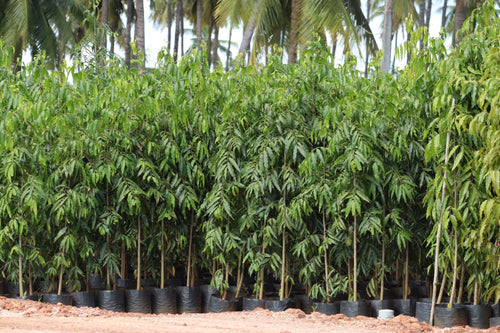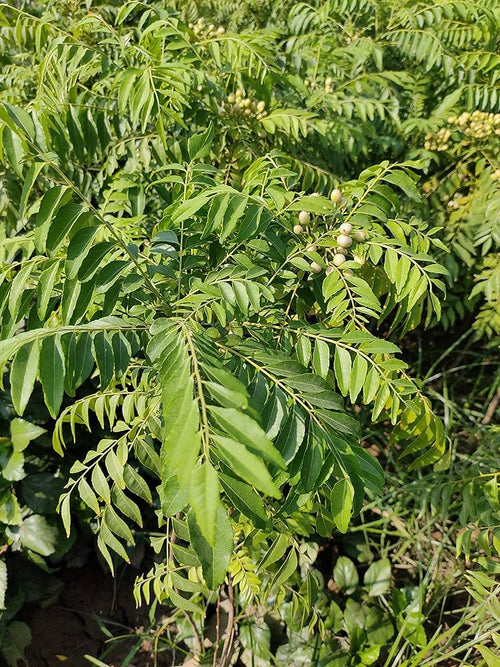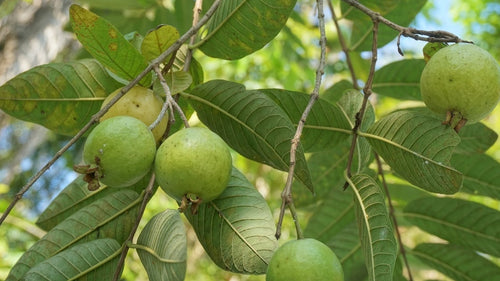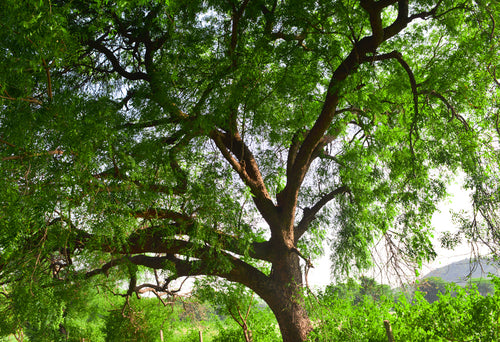"From Office to Oasis: Wipfli’s Employee-Led Urban Forest Initiative"
Wipfli has embarked on an inspiring initiative focused on tree plantation within the framework of the urban forest concept, taking root in a local sch Read more
Project Update 2
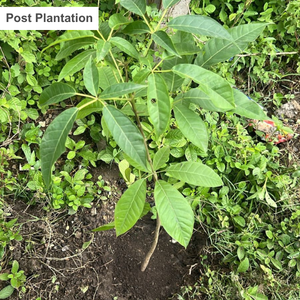
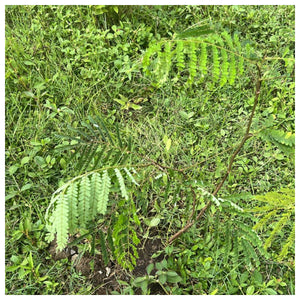
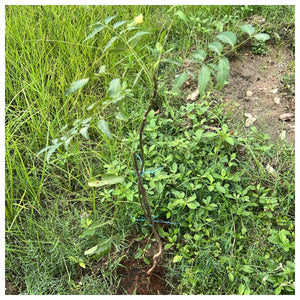
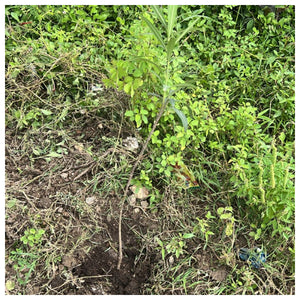
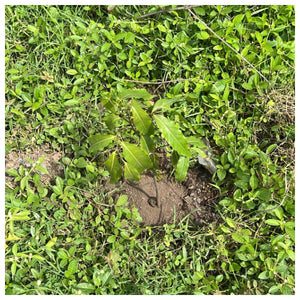
Project Update 1
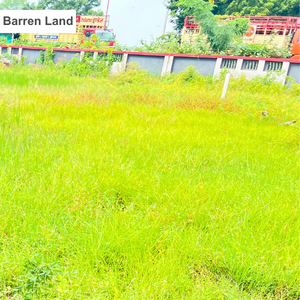

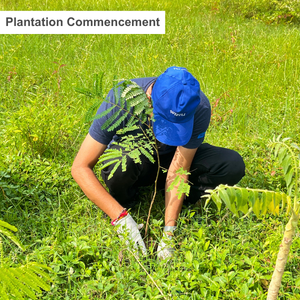

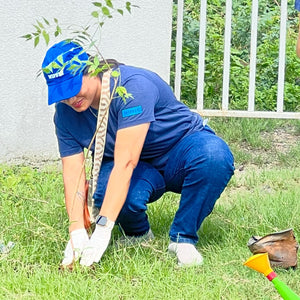
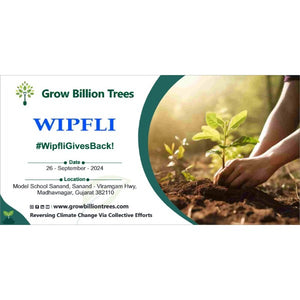
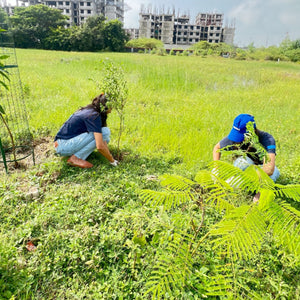


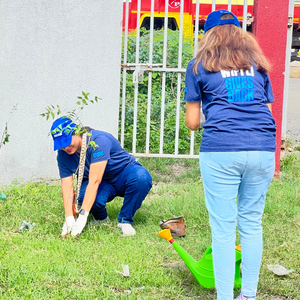
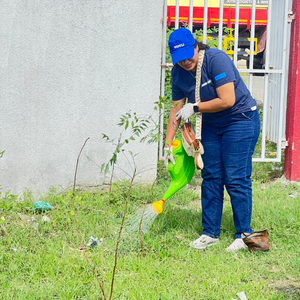

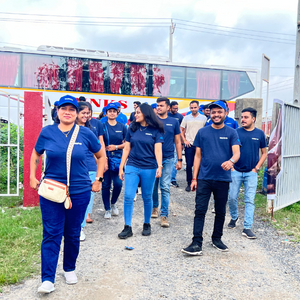
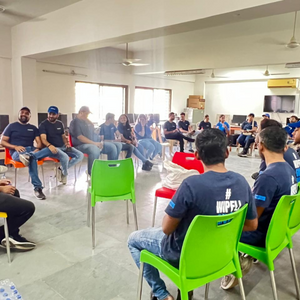
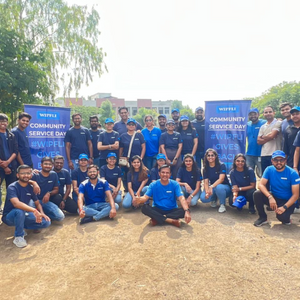
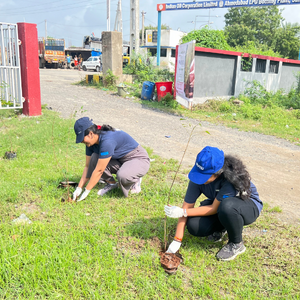
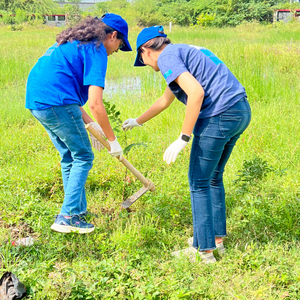
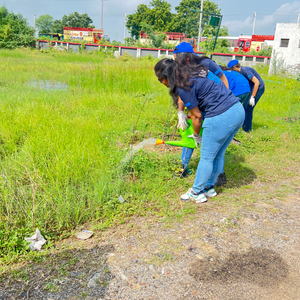
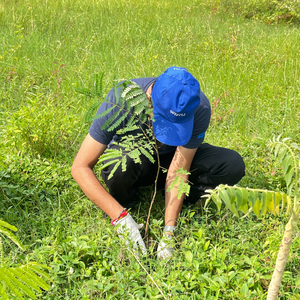
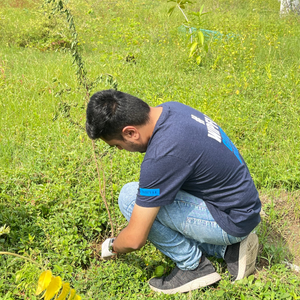
Digital Forest
Forest with 50 Trees planned
Want to plant your tree now?
Plant a Tree @ 299Trees Planted
"From Office to Oasis: Wipfli’s Employee-Led Urban Forest Initiative"
Wipfli has embarked on an inspiring initiative focused on tree plantation within the framework of the urban forest concept, taking root in a local school campus. This project not only beautifies the environment but also serves as a living classroom for students, fostering a deeper appreciation for nature and sustainability. The tree plantation involved planting a diverse array of native species, chosen for their ecological benefits and adaptability to the urban landscape.
The plantation, held under the spirit of ‘Wipfli Gives Back,’ transforms the school premises into a green haven—a space where children can engage with nature, explore biodiversity, and develop a deep sense of environmental responsibility from an early age.
Wipfli's commitment to environmental stewardship is evident in this project, aligning with broader sustainability goals and promoting a culture of responsibility among the next generation. As the trees grow and flourish, they will not only enrich the school campus but also inspire ongoing efforts to create greener, more sustainable urban spaces.
Through this initiative, Wipfli exemplifies its dedication to creating a sustainable future. By partnering with GBT and involving employees in hands-on environmental activities, the company has made tangible strides in restoring urban ecosystems, promoting sustainability, and inspiring others to take collective action for a greener planet. This initiative serves as a powerful testament to Wipfli’s long-term vision of building healthier, greener communities for generations to come.
Project Planning & Execution
No of Trees: 50
Plantation Location: Model School Sanand, Sanand-Viramgam Highway, Madhav Nagar, Gujarat 382110
Plantation Date: 4th October 2024
Name of Species: Kaner, Ashok, Guava, Neem, and Chandani
Species Selection & Its Benefits:
The species selected for Wipfli India LLP's urban forestry initiative were carefully chosen to align with the local ecosystem and maximise ecological benefits. The focus was on planting a mix of native, shade-providing, and fruit-bearing species, including Kaner, Ashok, Guava, Neem and Chandani to support biodiversity, offer habitats for wildlife, and contribute to the sustainability of urban environments.
Kaner (Oleander) is known for its vibrant flowers and ability to thrive in arid conditions, making it ideal for enhancing visual appeal in urban landscapes. Ashok (Saraca asoca), revered for its cultural and medicinal significance, provides dense foliage and helps improve air quality.
Guava (Psidium guajava) offers nutritional fruit, supports local biodiversity, and attracts pollinators. Neem (Azadirachta indica) acts as a natural air purifier, insect repellent, and is widely used in traditional medicine for its antibacterial and antifungal properties. Chandani (Tabernaemontana divaricata), or Tagar, adds ornamental value and contributes to overall greenery.
These species were chosen not only for their environmental benefits, such as improving air quality, preventing soil erosion, and enhancing water retention, but also for their ability to provide shade, reduce urban heat, and offer food sources for local communities. This thoughtful selection ensures that the trees serve both ecological and social purposes, creating a lasting positive impact on the urban landscape.
Beneficiaries Details
-
Target Population: Employees, stakeholders, and local community members of Gujarat
-
Age Group: All age groups focus on adults to seniors
-
Gender: Inclusive of all genders
-
Social & Economic Status: Open to all social and economic backgrounds, emphasising community involvement
Activities During Tree Plantation
The tree plantation drive at Model School Sanand, Madhav Nagar, Gujarat, was marked by active employee participation, fostering a strong sense of environmental responsibility and teamwork. The event was carefully structured to ensure smooth execution and meaningful engagement.
In preparation for the plantation, the site was readied with pre-dug pits, and saplings were carefully placed and positioned for optimal growth. Employees actively took part in planting native and fruit-bearing trees, deepening their understanding of sustainable practices and the ecological benefits of urban greening. Their hands-on involvement created a more immersive and fulfilling experience.
The plantation drive concluded with a reflection session, allowing participants to appreciate their contributions towards a greener environment. The initiative reinforced Wipfli India LLP’s commitment to sustainability, employee engagement, and corporate environmental responsibility.
Conclusion Elements
Impact
|
Parameters |
Values |
References |
|
No. of Trees Planted |
50 |
|
|
Green Cover (Acres) |
0.002 acre |
|
|
Carbon Sequestration Potential (KG) |
20 |
Small to medium-sized trees can sequester around 10–48 kilograms (22–106 pounds) of CO₂ annually. https://onetreeplanted.org/blogs/stories/how-much-co2-does-tree-absorb |
|
Carbon Sequestration by 50 mature trees ( Tons/year) |
1 Tons |
No. of Trees x Carbon Sequestration by 1 mature tree per year |
|
Carbon Credit Equivalent |
1 |
One carbon credit is equivalent to one tonne of carbon dioxide or the equivalent amount of another greenhouse gas. |
|
Carbon Footprint of an avg Indian Citizen (Tons/Year) |
1.8 |
|
|
Offsets Annual Carbon Footprint of (Adults) |
1 |
Carbon offset by 50 mature trees per year / Carbon Footprint of an avg Indian Citizen per year |
*This impact analysis is forward-looking (An urban-forest project matures in 3-5 years)
Indirect Impact
Community Impact
-
Improved Public Health: By improving air quality and reducing urban heat, the project indirectly contributes to better public health. The presence of green spaces encourages outdoor activities, which can reduce stress levels, promote mental well-being, and decrease the incidence of respiratory diseases.
-
Environmental Awareness: Involving communities in urban forestry raises awareness about environmental conservation and promotes sustainable practices in daily life.
-
Employee Morale: The initiative fostered a sense of pride and connection among employees, strengthening team bonds and their alignment with the company’s values.
-
Inspiration for Change: By showcasing the potential of urban forestry, the project has encouraged other organizations and local communities to undertake similar initiatives.
- Cultural Shift: The initiative instilled a mindset of sustainability and environmental care among participants, creating advocates for green practices in their personal and professional lives.
Environmental Impact
-
Carbon Sequestration: The trees planted through Eastman Auto & Power limited 's urban forestry initiative absorb carbon dioxide, acting as carbon sinks and helping mitigate climate change by reducing greenhouse gas emissions.
-
Soil Health Improvement: The tree planting initiative enhances soil health by enriching it with organic matter, improving soil fertility and structure, which supports the growth of surrounding vegetation.
-
Erosion Prevention: Tree roots help stabilize the soil in urban areas, preventing erosion caused by wind and water while safeguarding nearby properties and infrastructure from potential damage.
-
Biodiversity Conservation: By creating green spaces, the initiative supports local biodiversity, providing habitats for various species, pollinators, and beneficial insects, and enhancing the ecological balance in urban areas.
-
Water Cycle Regulation: The urban forestry project helps regulate the water cycle by improving water retention in the soil, recharging groundwater levels, and reducing surface runoff, leading to a more balanced and sustainable urban environment.
- Microclimate Regulation: Trees planted through this initiative moderate temperature extremes, reduce wind speeds, and increase humidity, creating a favourable microclimate for both the community and the urban ecosystem.
Achievements
SDG Goals Achieved through Urban Forestry
-
SDG 3: Good Health and Well-Being – Wipfli’s urban forestry initiative enhances air quality and creates green spaces that support physical and mental well-being. The presence of trees in school environments promotes stress relief and encourages outdoor learning and play, fostering a healthier lifestyle for children and the wider community.
-
SDG 6: Clean Water and Sanitation – Trees planted as part of the initiative aid in water conservation by boosting groundwater recharge, reducing surface runoff, and improving soil moisture retention. Wipfli contributes to sustainable urban water systems through strategic afforestation.
-
SDG 7: Affordable and Clean Energy – By mitigating the urban heat island effect, Wipfli’s tree plantation helps reduce ambient temperatures, lowering the demand for air conditioning and promoting energy efficiency through natural cooling.
-
SDG 8: Decent Work and Economic Growth – The initiative creates green employment opportunities in nursery operations, plantations, and long-term maintenance, contributing to local economic growth and sustainable livelihoods.
-
SDG 9: Industry, Innovation, and Infrastructure – Wipfli integrates sustainable urban forestry into community and infrastructure planning. The use of native species and community involvement promotes environmental innovation and urban resilience.
-
SDG 10: Reduced Inequalities – The plantation was inclusive, engaging employees from diverse backgrounds in a shared environmental mission. By developing accessible green spaces within schools, Wipfli promotes environmental equity and encourages broader community participation.
-
SDG 11: Sustainable Cities and Communities – Wipfli’s efforts directly contribute to more sustainable and liveable cities by increasing urban green cover, supporting biodiversity, and improving air quality.
-
SDG 12: Responsible Consumption and Production – Through careful species selection and long-term sustainability planning, Wipfli promotes responsible use of natural resources and long-term environmental stewardship.
-
SDG 13: Climate Action – The initiative actively contributes to climate change mitigation by enhancing carbon sequestration and expanding green cover, which helps reduce greenhouse gas emissions in urban areas.
-
SDG 15: Life on Land – By planting native and fruit-bearing trees, the initiative enhances urban biodiversity, supports pollinators and local wildlife, and strengthens ecological health in the region.
-
SDG 16: Peace, Justice, and Strong Institutions – Through inclusive community involvement and school-based participation, Wipfli fosters environmental awareness, responsible citizenship, and collaborative decision-making for sustainable development.
-
SDG 17: Partnerships for the Goals – The success of the initiative was driven by collaboration with partners such as Grow Billion Trees and local stakeholders. Wipfli demonstrates the power of partnerships in driving impactful environmental action and community engagement
ESG Achieved through Urban Forestry
-
Environmental Impact: Wipfli’s urban forestry initiative significantly enhances environmental sustainability. By planting diverse tree species, the company boosts biodiversity, creates habitats for wildlife, and supports local ecosystems. The trees act as carbon sinks, reducing CO2 levels and mitigating climate change. Additionally, the initiative improves urban climate resilience by regulating temperatures, reducing the heat island effect, and enhancing water retention, ensuring long-term ecological health for future generations.
-
Social Impact: Wipfli’s urban forestry initiative fosters community engagement and well-being by encouraging local participation in tree planting and environmental awareness. The green spaces created improve air quality, promote physical activity, and enhance public health. The project generates job opportunities in tree planting and maintenance while promoting social equity by ensuring access to green spaces for all, including marginalised groups. The initiative also serves as a living classroom, offering children valuable learning experiences about biodiversity, sustainability, and the importance of environmental stewardship. These efforts build a more inclusive, resilient, and sustainable community.
-
Governance Impact: Wipfli demonstrates strong leadership and commitment to sustainability through its urban forestry initiative. The company ensures transparency and accountability by effectively communicating project plans and outcomes to stakeholders. By collaborating with environmental organisations and local communities, it amplifies the impact of its efforts. This approach aligns with best governance practices, achieving environmental and social goals while promoting long-term sustainable growth.
Building Communities
One of the most impactful outcomes of Wipfli’s urban forestry initiative was the sense of unity and collaboration it cultivated. By involving employees, local communities, and volunteers, the project became a collective mission to create sustainable urban green spaces, fostering a shared commitment to a greener future.
-
Empowering Communities: Participants became active contributors, gaining knowledge about urban forestry practices and taking ownership of the initiative. This empowerment strengthened their connection to the environment and reinforced their role as environmental stewards.
-
Fostering Partnerships: The project brought together diverse stakeholders, including Wipfli, Grow Billion Trees, and local communities, highlighting the value of collaboration in achieving environmental and social goals.
-
Creating a Ripple Effect: As communities experienced the benefits of urban forestry, their enthusiasm inspired others to adopt similar practices, amplifying the initiative's positive impact across the region.
This initiative demonstrates that environmental sustainability thrives when rooted in collective effort. It’s not just about planting trees—it’s about planting hope, collaboration, and a shared vision for a healthier and greener future.
Commitment by Grow Billion Trees
-
Ensuring Tree Survivability: GBT prioritises native species, continuous monitoring, and soil health improvement using organic fertilisers. These efforts ensure sustainable growth and benefit communities.
-
Transparency & Accountability: GBT provides detailed reports on tree growth, survival rates, and carbon benefits, using geo-fencing and regular updates to maintain transparency and effectiveness.
-
Sustainable Plantation Efforts: GBT implements projects that balance environmental, social, and economic goals, addressing issues like urban heat islands and degraded farmlands. These efforts promote ecological balance, livelihoods, and long-term climate resilience.
-
Enhancing Ecosystem Health: By selecting native species and creating diverse habitats, GBT enhances biodiversity and ecosystem resilience, ensuring long-term ecological health and supporting wildlife.
-
Long-Term Impact: GBT’s initiatives tackle environmental challenges, foster climate resilience, and promote sustainable development while reducing carbon footprints.
Acknowledgment
We at Grow Billion Trees extend our heartfelt gratitude to all those who have contributed to the success of the urban forestry initiative across Gujarat. This project, which combines environmental sustainability with employee engagement, would not have been possible without the support and collaboration of our dedicated employees, local authorities, and partners. Their collective efforts in planting and nurturing over 50 trees are helping create a greener and more resilient future for urban communities. We are thankful for their commitment to fostering biodiversity, improving air quality, and promoting a sustainable future.
To Wipfli India LLP: We sincerely thank you for your dedication to sustainability and employee engagement. Your innovative approach to urban forestry has laid the foundation for a greener, more resilient future in Gujarat. The plantation, held under the spirit of ‘Wipfli Gives Back,’ transforms the school premises into a green haven—a space where children can engage with nature, explore biodiversity, and develop a deep sense of environmental responsibility from an early age. These efforts build a more inclusive, resilient, and sustainable community. Together, we have created a legacy that will continue to benefit urban communities and contribute to a sustainable tomorrow.
To The School Management: The success of Wipfli’s Urban Forestry initiative would not have been possible without the wholehearted support and active participation of the school community. By opening their campus to this transformative plantation effort, the school has not only provided space but has also become a steward of sustainability and a beacon of climate education. The newly created green space offers students an opportunity to engage with nature, understand biodiversity, and develop a deeper sense of environmental responsibility. Their commitment to nurturing the saplings and embedding ecological values into everyday learning is helping shape a generation of environmentally conscious citizens. We deeply value the school’s vision, collaboration, and leadership in making this initiative meaningful, educational, and lasting.
To Our Ground Partners and Volunteers: Your expertise, dedication, and passion for environmental sustainability have been crucial to the success of Wipfli’s urban forestry initiative. Through your collaborative efforts, we have made meaningful strides in creating greener urban spaces and promoting biodiversity across Gujarat. Your contributions have not only enhanced the environment but also fostered community engagement and awareness. Together, we are building a more sustainable future, and we look forward to continuing our partnership in creating a greener, healthier world for all.
Thank you for your unwavering support and commitment.
Closing Remarks
We are proud to have embarked on Wipfli India LLP’s journey of environmental sustainability through their urban forestry initiative in Gujarat. This project has not only enhanced urban greenery but has also fostered a sense of community engagement and environmental stewardship. It highlights the power of collaboration, where every contribution, big or small, brings us closer to a healthier, more sustainable future.
As we look ahead to the continued success of this initiative, we are committed to expanding our efforts and inspiring others to join us in creating lasting positive change. Together, we are laying the foundation for a world where urban sustainability, community empowerment, and responsible practices thrive.
Thank you to everyone who has been part of this meaningful endeavor. Let’s continue working together to make a difference for today and future generations.
Trees for Corporates
Trending
Most Popular
1. Urban forest ecosystem services
Think of an urban forest as your city’s personal assistant—except instead of booking meetings, it cleans the air, cools the streets, and reduces noise. The ecosystem services provided by urban forests are like a backstage crew making sure everything runs smoothly. They filter out pollutants, store carbon, and provide homes for local wildlife. Need a break from the hustle and bustle? These green spaces are perfect for a relaxing stroll. So, the next time you’re enjoying a cool breeze or birdsong in the middle of the city, tip your hat to the urban forest for working behind the scenes!
2. Wipfli CSR initiatives
When it comes to Wipfli’s CSR initiatives, they’re not just counting beans—they’re planting them! Wipfli knows that a solid corporate social responsibility program goes beyond spreadsheets. Their tree plantation drives are more than just a green thumb exercise; they’re part of a bigger plan to give back to the environment. Whether it’s an urban forest project or a reforestation effort, Wipfli’s commitment to sustainability is as strong as an oak tree. And the best part? They get their employees involved, turning team-building into tree-building!
3. Tree planting for urban air quality
Ever notice how the air smells fresher in a park? That’s no coincidence. Tree planting is one of the best ways to improve urban air quality. Trees act like natural air purifiers, filtering out pollutants and pumping out fresh oxygen. They take in the bad stuff—like carbon dioxide and other nasty particles—and give us the good stuff. It’s like having nature’s own air filter on every corner. So if you’re feeling a bit suffocated by city smog, a few more trees might be just what the doctor ordered!
4. Employee engagement through urban forest
Looking for a team-building activity that doesn’t involve awkward icebreakers? Try planting trees! Employee engagement through urban forest initiatives is a fantastic way to get your team outdoors and doing something meaningful. There’s something about digging in the dirt and planting saplings that makes people feel connected—not just to nature, but to each other. Plus, at the end of the day, employees can walk away knowing they’ve made a lasting impact on the environment. Goodbye trust falls, hello tree falls (the kind you plant, not the kind that make you fall)!
5. Sustainable urban planning with trees
Sustainable urban planning doesn’t just mean fancy buildings and bike lanes—it means making room for trees! Adding greenery to city planning is like adding a secret ingredient to a recipe. It might seem small, but it changes everything. Trees improve urban air quality, reduce the heat island effect, and boost residents’ mental health. They’re like the silent superheroes of city design. So, the next time you see a new development with plenty of green space, know that someone’s thinking sustainably—and giving Mother Nature a standing ovation.
6. Wipfli sustainable initiatives
When it comes to Wipfli’s sustainable initiatives, they’re not just talking the talk—they’re walking the walk (through an urban forest, of course!). From energy-efficient practices to tree planting projects, Wipfli knows that sustainability is more than a buzzword; it’s a responsibility. Their initiatives blend business with environmental stewardship, ensuring that their carbon footprint is as small as possible. And let’s face it—when you plant trees and reduce emissions, you’re not just saving the planet, you’re scoring major eco-points too.
7. Urban forest biodiversity
An urban forest isn’t just a bunch of trees—it’s a bustling metropolis for wildlife! From squirrels to birds and bugs, these green spaces are like Times Square for nature. Urban forests enhance biodiversity by providing habitats for various species that might otherwise struggle to find a home in the concrete jungle. The variety of plant species also supports a diverse ecosystem that helps maintain balance in the urban environment. So, when you plant a tree in an urban forest, you’re not just adding greenery—you’re creating a whole world for nature to thrive in!
8. Tree plantation for climate resilience
Want to make your city more resilient to climate change? Tree plantation is your best bet! Trees are like the ultimate climate warriors—they cool cities, absorb stormwater, and act as windbreaks during storms. Plus, they store carbon, helping to offset emissions and slow down global warming. If you’re looking to future-proof your urban environment, planting more trees is the way to go. It’s like giving your city a superhero cape—only instead of flying, it’s standing tall, rooted firmly in the ground, ready to take on whatever climate change throws its way.
FAQ
What is the purpose of Wipfli’s tree plantation initiative in India?
Wipfli’s tree plantation initiative in India aims to create sustainable green spaces through urban forests that enhance biodiversity, improve air quality, and support community well-being. By involving employees and local communities in tree planting activities, we foster environmental stewardship and contribute to building a healthier and more resilient urban environment. This initiative is part of our broader commitment to sustainability, addressing climate change, and promoting sustainable development in the regions we operate.
How does Wipfli’s tree plantation initiative benefit urban areas?
Wipfli’s tree plantation initiative benefits urban areas by increasing green cover, reducing air pollution, and combating the urban heat island effect. The trees planted help absorb carbon dioxide, produce oxygen, and offer shade, making cities cooler and more livable. Additionally, the urban forest concept promotes biodiversity by providing habitats for various species, which improves the ecological balance in urban settings. This initiative transforms underutilized spaces into green retreats, making urban areas more sustainable and enjoyable for residents.
How is Wipfli involving its employees in the tree plantation initiative?
Wipfli actively engages employees through hands-on tree planting drives, sapling adoption programs, and environmental workshops. Employees participate in various activities such as planting, nurturing, and monitoring the growth of saplings, which fosters a sense of ownership and connection to the project. This initiative serves as a team-building exercise while promoting environmental awareness and responsibility. By empowering employees to contribute directly to sustainability efforts, Wipfli strengthens its culture of social and environmental responsibility.
What makes urban forests different from regular tree plantations?
Urban forests are specially designed to thrive in cities, transforming underutilized urban spaces into self-sustaining ecosystems. Unlike regular tree plantations, urban forests involve a mix of native tree species that support local biodiversity and create natural habitats for wildlife. Urban forests are planned for long-term sustainability, require minimal maintenance once established, and provide numerous benefits such as improved air quality, reduced noise pollution, and enhanced community well-being.
What environmental goals does Wipfli’s tree plantation initiative support?
Wipfli’s tree plantation initiative supports multiple environmental goals, including climate change mitigation, carbon sequestration, and biodiversity restoration. By increasing green cover in urban areas, the initiative helps combat air pollution and contributes to global efforts to reduce greenhouse gas emissions. The focus on planting native species also promotes ecological balance, enhances local biodiversity, and supports the health of surrounding ecosystems, aligning with several United Nations Sustainable Development Goals (SDGs).
How does Wipfli ensure the sustainability of its urban forests?
Wipfli ensures the sustainability of its urban forests by carefully selecting native tree species that thrive in local conditions, minimizing the need for external inputs like watering and fertilizers. The initiative involves employees and local communities in ongoing maintenance, such as weeding and monitoring tree health, to ensure the forests grow strong and resilient. Additionally, Wipfli conducts regular assessments to evaluate the health and ecological impact of these forests, making adjustments as needed to promote long-term sustainability.
Can Wipfli’s urban forests contribute to reducing air pollution?
Yes, Wipfli’s urban forests significantly contribute to reducing air pollution. Trees act as natural air filters, absorbing pollutants like carbon dioxide, sulfur dioxide, and particulate matter. The leaves, bark, and roots of these trees help trap dust and other harmful particles, resulting in cleaner and healthier air. This is especially beneficial in urban areas where air quality tends to be poor. By increasing green cover and promoting natural filtration, Wipfli’s initiative helps create a healthier urban environment.
How does Wipfli’s tree plantation initiative contribute to employee well-being?
Wipfli’s tree plantation initiative enhances employee well-being by providing a meaningful opportunity to connect with nature and contribute to a sustainable cause. Participating in tree planting and maintenance activities is a great way for employees to de-stress, engage in physical activity, and experience the benefits of being outdoors. The initiative also promotes teamwork and a sense of community among employees, leading to higher job satisfaction and morale. Being part of a project that makes a positive environmental impact adds to their sense of purpose and fulfillment.
How can local communities get involved in Wipfli’s tree plantation initiative?
Local communities can get involved in Wipfli’s tree plantation initiative by participating in planting drives, volunteering for tree care activities, and joining environmental workshops organized by Wipfli. We encourage residents, schools, and community organizations to collaborate with us in expanding the urban forests. Through these partnerships, we aim to raise environmental awareness, foster a sense of shared responsibility, and create a greener, healthier environment for everyone.
What are the long-term goals of Wipfli’s urban forest initiative in India?
The long-term goals of Wipfli’s urban forest initiative in India include creating self-sustaining green spaces that enhance biodiversity, mitigate climate change, and promote environmental education. We aim to establish a network of urban forests that contribute to healthier, more sustainable cities and communities. These green spaces will serve as ecological havens, improve the quality of life for residents, and create opportunities for ongoing engagement and learning about environmental conservation.
- Choosing a selection results in a full page refresh.
- Opens in a new window.


